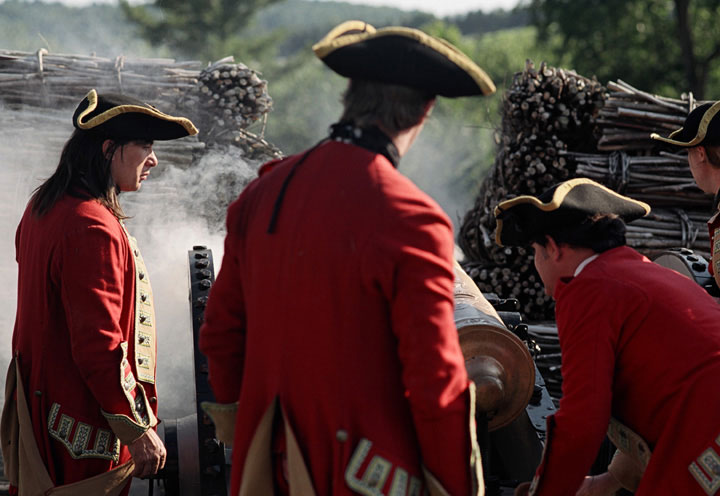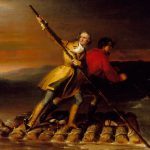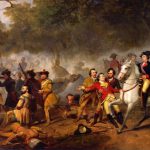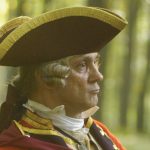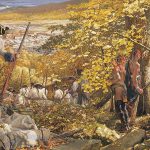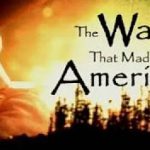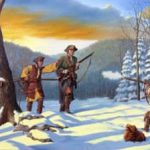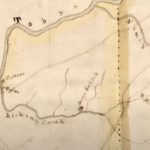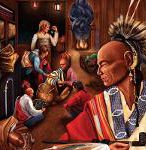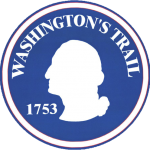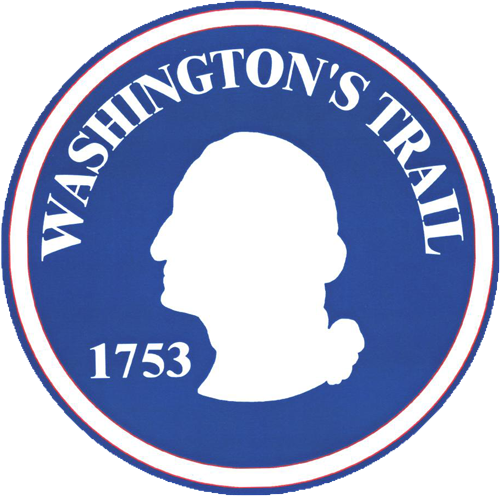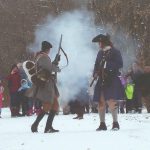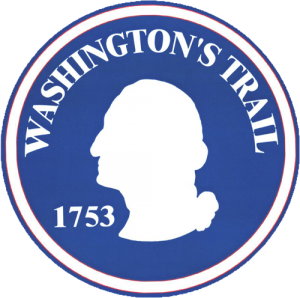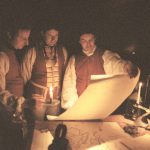Phineus Cobb
Embedded Journalist
Get weekly updates from Phineus Cobb as he travels through Ohio Country covering the French and Indian War for the Pennsylvania Gazette.
Intro
Historical Context
Since newspapers in the 18th century did not use field correspondents, this embedded journalist is a fictional character. Nonetheless, French and Indian War 250, Inc. wanted this figure to reflect a common type that would have been associated with the newspaper business of the day.
Therefore, with the help of the late David Dixon who was a popular professor of American History, Slippery Rock University, F&IW 250 drew upon information regarding Benjamin Franklin’s early career to conjure the correspondent.
A short “autobiographical” sketch of his background and accomplishments on the eve of the French and Indian War follows.
Who
Biography
My name is Phineus Cobb. I am a special correspondent for the Pennsylvania Gazette. I am assigned to cover the present war now being waged between the forces of his Royal Highness, George II of Great Britain, and those of his most Christian Majesty, Louis XV of France. I come to this position without trepidation and feel fully prepared, through training and experience, to provide readers with an unbiased account of the progress of the current conflict.
You will be hearing more from me over the next several weeks as s I tell you about my travels through the Ohio Country, and what I’m seeing and hearing now in this new assignment.
I was born in Dedham, Massachusetts on the 20th day of July in the year of our Lord, 1726, according to the old calendar.
Being the youngest son of Tobias and Prudence Cobb, and bound to the ancient customs of primogeniture, I had no hope of inheriting my father’s meager land holdings. Therefore, at the age of 14, I was apprenticed to Mr. John Draper of Boston to serve as a typesetter. I am convinced that Draper has ink in his veins rather than blood due to his knowledge of printing and publishing. To this day he is the editor and publisher of New England’s most influential newspaper, the Boston News-letter.
Under Mr. Draper’s watchful eye, I learned a great deal and, as time went on, he allowed that I should frequent the docks to learn of news coming in from the seaboard colonies and West Indies. In this fashion, I became a reporter. After interviewing the ship’s captains and collecting old newspapers from London, I would return to the print shop and set to work writing articles about the outside world that would appeal to our readers. Of course, the information coming from the mother country was quite old, considering that it oftentimes took four to six weeks for the vessels to sail across the Atlantic bearing dispatches.
In the year 1744 our sovereign, King George II, engaged in war with France on the continent of Europe.
Needless to say, the war spread to the American colonies and New Englanders flocked to join the army and fight the French colonists in Canada. With patriotism stirring in my breast, I joined the provincial forces gathering to attack the enemy fortress of Louisbourg, located on Cape Breton Island. This was my first taste of military life, and I must confess that the taste was indeed bitter to my tongue. Four thousand hardy New England lads boarded ships and sailed north. The troops suffered greatly for want of food and supplies. Nonetheless, we were victorious in seizing the French stronghold.
The war ended with the Treaty of Aix-la-Chapelle in 1748 and New Englanders were shocked to learn that Louisbourg, which we had fought so hard to capture, was returned to the French. I need not say that many of us began to suspect at this time that the crown cared little about our interests here in America, for we all knew that it would only be a matter of time before we would once again be compelled to fight the French. Then, we would have to take the fort again. So much blood had already been shed to win this vital spot of land!
After I mustered out of the provincials, I determined not to return to Mr. Draper’s employ, but to strike out for new opportunities to the south.
Thus I came to the Quaker colony of Pennsylvania where I found work in the service of the Pennsylvania Gazette, a newspaper formerly owned and operated by the famous Dr. Franklin.
Although he no longer owns the paper, the good doctor still frequents the establishment and it has been my pleasure to engage him in good natured conversation concerning politics, science, and virtue.
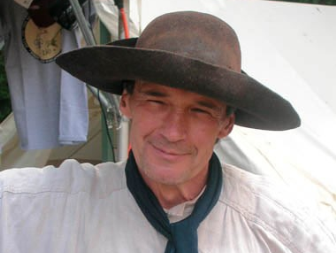
What
The Assignment
Now, bloody war once again threatens our shores. Word has come to the city that the French have invaded this pacific province and have set about building forts on our frontier. It has been learned here that Virginia’s governor, Robert Dinwiddie, will send an envoy to the French commander demanding that he withdraw from our western borders and return to Canada.
Due to my experience in military matters and journalistic endeavors, I have been selected to accompany this diplomatic mission to the French forts. I will join the expedition, under the command of a young provincial major named George Washington, at Wills Creek, Maryland on the last day of October, 1753.
